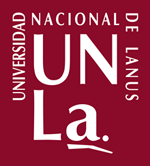The definition of territory in environmental national laws and policies between 1973 and 2010.
Abstract
This article develops a diachronic analysis of Argentina’s environmental laws and national policies from the 1970s to the first decade of 2000, insofar as they constitute instances of crystallization of a state’s definition of territory. Our argument asserts that as institutional definitions of both territory and environment are linked to the type of political regime, its ideological or normative perceptions as well to the gravitation of the prevailing conceptual
lines in the international arena. Five specific moments are identified within the four decades under scrutiny, according to differences in the governments’ performances and their supporting coalitions of forces. Accordingly, what the state names as environmental laws and policies are privileged standpoints to find out the overall ideological sediment that structure the state’s definition of territory as well the relational patterns between society, nature and the state.






